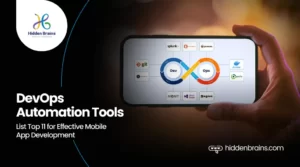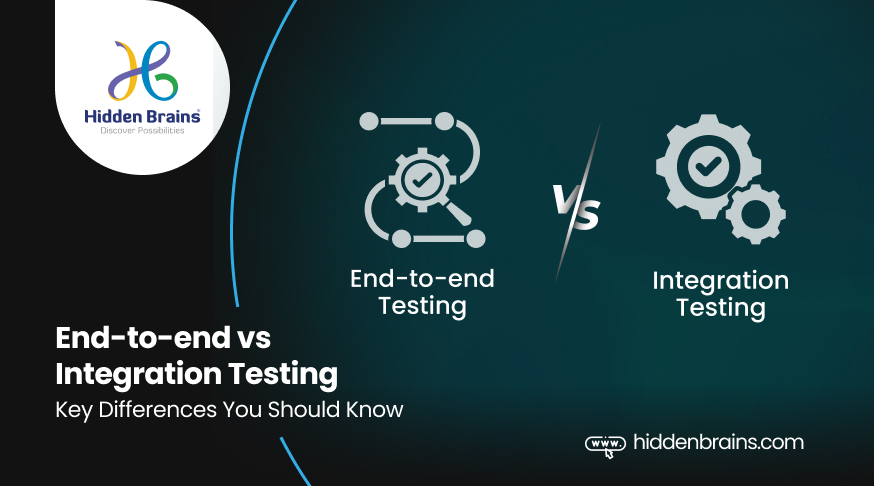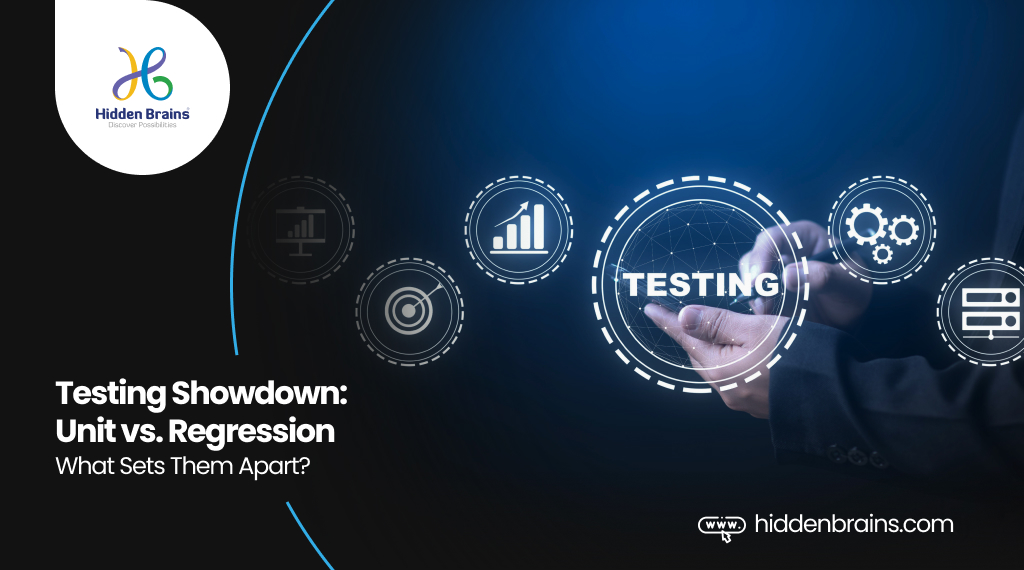Quick Summary
Discover the top 11 DevOps tools transforming business productivity in 2025. From automating workflows to accelerating deployments, these tools help teams collaborate smarter, release faster, and optimize operations. Learn how leveraging the right DevOps stack can drive efficiency, reduce errors, and boost overall enterprise performance.
The primary reason for implementing DevOps Automation Tools for mobile application development is to adhere to the practices, tools, and principles. This allows enterprises to raise their competitive advantage by enhancing the quality of the app. There are around 4.88 million mobile users across the globe who want an interactive UI/UX. However, Using the tools ensures the timely delivery of the app including the necessary features.
The list of the top DevOps Automation Tools is shared in the link above. This is helpful for the quality assurance experts as well as the project managers to utilize them for improving the app functionalities. The question is why enterprises should choose DevOps Automation Tools. Allow us to make you understand with a statistic.
Do you know that 61.21% of companies use DevOps services in the United States to eliminate inefficiencies of the mobile app? This data reveals the fact that rapid deployment of apps is facilitated when the right DevOps tool is used. The blog shares crucial information regarding the top tools that would be beneficial for effective mobile application development.

Transform Your Business with Emerging Tech
Choose AI/ML Development servicesOverview of DevOps Automation Tools
Mobile Application development and deployment have to be done with efficiency while meeting the project timelines. Thus, selecting the DevOps Automation Tools can be helpful for enterprises to streamline workflow. There are major benefits to using DevOps Automation Tools. These are:
- Scalability: Any mobile application can achieve a reliable market value if it is scalable. Cloud adoption while implementing the DevOps Automation Tools promotes resource management thereby reducing app complexities.
- Efficiency: The primary feature of automated tools is that the app can be made efficient in performance. This is because the repetitive tasks are automated while reducing human effort and errors.
- Security: Continuous assessment and compliance checks of the application help in identifying risks and mitigating them on priority. The integration of security practices ensure the development of a secured mobile app.
Enterprises that want to choose Mobile App Development Services must consider the points shared above. This will allow them to find the right company to develop a mobile app. But before that understand the importance of DevOps Automation Tools for your organization.
Also Read: Top DevOps Tools: When To Choose What Tools?
Why DevOps Automation Tools are Crucial for Large Enterprises?
DevOps tools help teams to manage their workload more efficiently and quickly deploy software. However, by using the right tools, software development teams can reduce costs and increase efficiency. To develop the software as planned, the DevOps Automation Tools are effective. Here are some of the reasons why large enterprises should make use of such tools:
- To Build User-Focused Mobile Applications: The tools help in detecting code anomalies that are resolved at the earliest. The supreme part is that the CI/CD technique and more allows engineers to make iterations in the application until the required product is created. This is how a user-interactive app is developed
- Suitable for Continuous Deployment: The clients who want to iterate the software multiple times for them the developers are required to deploy the software product several times.
- To build Scalable Applications: The developers who face challenges during the React native app development must check out the DevOps Automation Tools. These provide cloud management tools that allow easy scaling of the applications.
Now that the requirements of DevOps Automation Tools are cleared, let us discuss each one of them in detail.

Want to Build a Mobile Application?
Choose the Best iOS App Development Services from Hidden BrainsList of Top 11 DevOps Automation Tools
The foremost reason to choose any one of these automation tools is to reduce human intervention and promote automation. This helps the development team in streamlining the software development process. The infrastructure compatibility, scalability, and ease of use can be tested for various devices.

1. Docker
The goal of this automation tool is to maintain consistency between environments and to ensure security. There are thousands of companies that believe in the working of Docker and thus they implement it for testing the app.
The microservices that are offered by the tool help the developers in completing a particular task on time. Around 49.70% are Docker customers in the United States which represents the popularity of this automation tool.
2. Git
Git is essentially used for source code management. The relevant changes that are required in the application are informed by the tool to the developer. The changes can later be implemented to maintain the code’s efficiency.
Most Kotlin app development Companies use Git to ensure that significant changes are made to the source code. This process helps in creating a reliable software.
Also Read: Azure DevOps vs GitHub: Which DevOps tool is better?
3. Kubernetes
This tool is used by many developers because it is an open-source container orchestration system. Maintained by a cloud-native computing foundation, it is perfect for deploying and managing containers.
In case, the scheduling is failed then Kubernetes can help to manage it within a certain duration. The prompt benefit of this tool is that the project managers do not need to exceed the team as the containerization tasks can be handled properly.
4. Jenkins
The developers who are working in a large enterprise and want to conduct rapid mobile app development then Jenkins is superb. There are extensive APIs that are helpful to test the applications with the utmost quality.
The efficiency that it offers allows the developers to add multiple features and functionalities to the app while maintaining flexibility. Jenkins is written in Java programming language and can be used for a continuous integration process for an application.
5. Puppet
This automation tool was launched while keeping a developer’s perspective in mind. As the server is a crucial part of the system, the Puppet can be used to make it admin-centric. They can diagnose the application thoroughly to make it appropriate to the user.
The benefit of using this tool for modern app development is that it allows centralized management of an infrastructure. If the enterprises have to build complex mobile apps then Puppet can be used to manage the quality. We will be further discussing Terraform which works like that of Puppet to manage the app’s infrastructure.
6. Chef
An application’s infrastructure management can be greatly done by the components of ‘Chef’. There are basically three that include server, workstation, and node. Beginning with the workstation, it allow administration of the infrastructure by adding more scripts then comes the server that stores the data. Lastly, nodes are used for configuration.
The primary benefit of using Chef is to make the application scalable. The testers prefer to use Chef because of the compliance feature that it provides. There is no legal concern while testing and maintaining the application when it is used with this tool.
7. Ansible
The top feature of Ansible is configuration management, but testers also use it for application deployment. This open-source software platform can be easily accessible by any quality analyst because its syntax is written in the YAML language.
There are custom modules that allow testers to analyze the functionality of the application. The best part is that there is no additional software required to access Ansible.
8. Nagios
The foremost reason to choose Nagios is that it allows periodic checks for a mobile application. The tool can be used to check the logs and analyze the development concerns. The administrators are notified of the issue whenever something goes wrong so that the problem can be solved at a particular time.
Specifically, Nagios can be used when an enterprise is working on a project of Android or iPhone app development. The real-time insights of the app help the experts in improving its infrastructure which is a crucial aspect of the development process.
9. Terraform
There are numerous tasks that the DevOps team needs to handle for which Terraform can be essentially used. The advantages of Terraform are rapid deployment, reduced duplication, and simplification of complex environments.
The state of the software application is defined using a human-readable configuration that makes it convenient for analyzing the performance of the application. The enterprises can choose Terraform to manage the cloud resources efficiently.
10. Selenium
The testers and developers want to receive an assurity that their software product is good for deploying. Selenium can be used to perform continuous testing for the applications that need to be automated.
The top reason that the development team can choose this tool is because it is open-source and can run on discrete browsers. Enterprises that want to build cross-platform applications can implement the Selenium tool for checking the application on various devices with the desired testing scripts.
11. Nomad
Deploying and managing containers is made easy with Nomad. This tool is quite of a help to developers who want to build applications with a lot many features without losing on their flexibility feature.
Enterprises that have selected Android App Development Services for the next project can choose Nomad. This will help them to include as many features as needed in the application.
The choice to use any one of these tools entirely depends on the project size, the quality required, and the timeline.
Best Practices that DevOps Engineers Must Follow for Software Testing
The DevOps engineers must follow the best practices to ensure bug-free software development. Some of these are discussed in this section:
Documentation of Testing Plans
Noting down the testing plans will be effective for the quality assurance team to evaluate the testing success. The documentation points can include:
- Scope & Objectives of Testing Software
- Determine Test Cases
- Specify Testing Methodologies
- Record of Software Test Results
The DevOps engineers can add more points in the document for their knowledge and that of the end user.
Implement Automated Test Scripts
The repetitive and time-consuming testing can now be resolved while implementing automated test scripts. The automated test scripts are usually written in programming languages such as PHP, Java, Javascript, and Python.
Reduced human error, software efficiency, and rapid feedback cycle allow DevOps engineers to complete their regular tasks within a suitable time frame. This kind of practice is effective when there is a requirement to quickly deliver the project.
Regression Testing Method
The DevOps engineers get to know the errors before the software product is deployed to the client’s space. Generally, during rapid development, the developers face several issues in the application for which regression testing is crucial.
This best practice is used by enterprises because it complements both DevOps and Agile methodologies. New functionalities can be conveniently included without affecting the existing features of the application. In simple terms, the best practice of regression testing provides stability to the software.
Also Read: Complete Guide to Best Practices for Software Testing
Implement in-person Testing
Communicating directly with the client helps analyze the specific query of a user. The actual bugs from the user’s perspective can be solved in real time. The DevOps engineers can then test the software on various devices and operating systems to ensure its operability.
This is comparatively an effective best practice for software engineers to evaluate the performance of a software application. Each user has a discrete perspective that is effective for the DevOps Engineers to build an authentic software.
Implementation of Small Iterations
There might be a situation where the DevOps engineers might feel hectic to work on minor iterations but these help in building high-quality software. The errors that are detected during the testing process are considered to prepare the best version of the application.
The project stakeholders of large enterprises can contact a reputed IT company that provides AI/ML Development Services to automate tasks. The experts have relevant experience in accomplishing automation tasks and will also share the work report after each phase so that project stakeholders can check to monitor the development process.
Following these best practices will support the DevOps Engineers in completing the project rapidly with the required features/functionalities.

Willing to Select Mobile App Development Services?
How Hidden Brains Can Help to Select DevOps Automation Tools?
The mobile application development market is full of competitors. In such a scenario how an enterprise can gain stability and improve the quality of the mobile apps? The answer is by making use of DevOps Automation Tools. They can Hire Developers from Hidden Brains who are talented in working with emerging technologies.
The professionals will assist your team in accomplishing the next project efficiently. Hidden Brains is the top software development and outsourcing company to help you complete your business requirements with ease. Connect with us at biz@hiddenbrains.com for effective mobile app development and to recruit developers.
Frequently Asked Questions
We are sure that the blog sections have provided essential information regarding the DevOps Automation Tools and their importance in the development environment. Here are some FAQs that will help you to gain a proper understanding of the importance of such tools.
1. Why are DevOps Automation Tools Important for Large Enterprises?
The foremost aspect is to manage the project’s complexities. Other reasons are:
– Repetitive tasks such as testing and monitoring of an app are automated allowing the developers to make quick iterations as per market demands.
– The enterprise owners wonder that the DevOps will be expensive but this is not the case. There are huge savings for the companies as the resource allocation is optimized.
– Automated recovery is the prime benefit that enterprises can experience with automation tools. Due to several projects, data might get lost which can be retrieved with such tools.
2. What are the Benefits of Using Azure DevOps for Large Enterprises?
The basic requirement of a large enterprise is to manage the workflow due to multiple projects that need to be handled. Azure DevOps allows the development team to monitor the tasks and speed up the software delivery. However, the existing Microsoft ecosystems can be managed with CI/CD techniques and project management offered by the DevOps automation tools.
3. What Factors Should Be Considered When Selecting DevOps Automation Tools?
The enterprises or the project stakeholders must focus on factors such as security, scalability, and integration capabilities. As discussed in detail in the blog, DevOps tools perfectly align with the organizational goals to ensure the delivery of high-quality software products.
4. What are the Benefits of DevOps Outsourcing?
Enterprises that want business growth while managing costs can choose to outsource DevOps Engineers. The skilled professionals do not require training that reduces overhead costs. Also, they have experience in accomplishing complex projects with ease which would be a benefit to the companies. Hidden Brains provides outsourcing services to businesses that are willing to leverage business success.
Conclusion
The blog concludes the top DevOps automation tools that are important to streamline the software development process. CI/CD pipelines, configuration management, or monitoring tools offer powerful automation solutions to large businesses.
The DevOps engineers can use these tools for rapid testing of software applications and for speedy completion of development. Large enterprises must select any one of these to ensure quality and fast delivery of the applications. Moreover, they can connect to a software development company like ours or hire developers who can accomplish complex tasks.






























































































![Sales & Distribution [Oil & Gas] Sales & Distribution [Oil & Gas]](https://www.hiddenbrains.com/blog/wp-content/themes/blankslate/assets/images/sales_and_distribution-icon.74d08193.svg)

![Fluid Terminal Management [Oil & Gas] Fluid Terminal Management [Oil & Gas]](https://www.hiddenbrains.com/blog/wp-content/themes/blankslate/assets/images/fluid_terminal_management-icon.4b3a27a4.svg)































![Sales & Distribution [Oil & Gas] Sales & Distribution [Oil & Gas]](https://www.hiddenbrains.com/blog/wp-content/themes/blankslate/assets/images/sales_and_distribution-icon.74d08193.svg?1.0.0)
![Fluid Terminal Management [Oil & Gas] Fluid Terminal Management [Oil & Gas]](https://www.hiddenbrains.com/blog/wp-content/themes/blankslate/assets/images/fluid_terminal_management-icon.4b3a27a4.svg?1.0.0)
























































































































































































